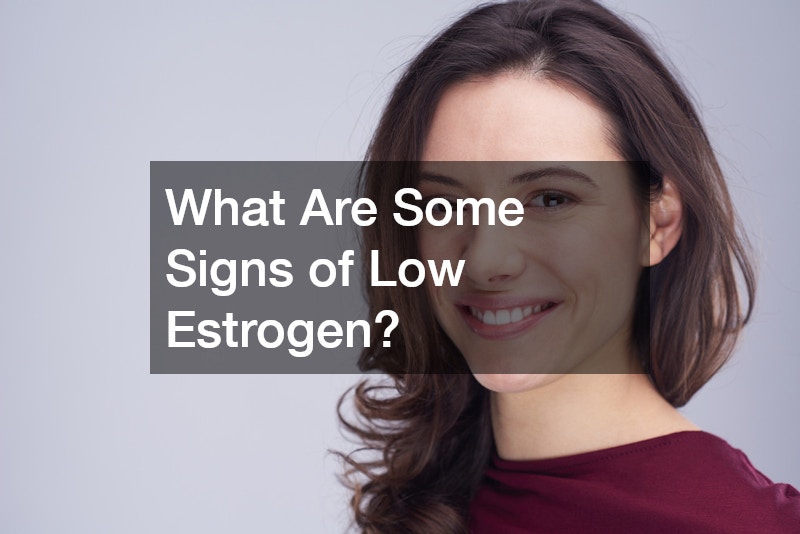Estrogen is a vital hormone that plays a key role in regulating many bodily functions, particularly in women. From reproductive health to bone density and mood regulation, estrogen helps maintain a delicate balance. When estrogen levels drop, it can lead to a variety of symptoms that affect both physical and emotional well-being. Understanding the signs of low estrogen is important for identifying hormonal imbalances early and seeking appropriate treatment. Here are some common indicators of low estrogen levels.
1. Irregular Menstrual Cycles
One of the most noticeable signs of low estrogen is irregular or absent menstrual periods. Estrogen is essential for regulating the menstrual cycle, and a decrease in this hormone can cause periods to become infrequent, shorter, or completely absent. For women approaching menopause, irregular periods are common, but if you’re experiencing this at a younger age, it could be a sign that your estrogen levels are lower than normal.
2. Hot Flashes and Night Sweats
Hot flashes and night sweats are commonly associated with menopause, but they can also occur in younger women with low estrogen levels. A hot flash is a sudden feeling of intense heat that typically affects the face, neck, and chest. It can be accompanied by sweating and reddened skin. Night sweats, the nocturnal version of hot flashes, can disrupt sleep and lead to fatigue. These are both common signs of low estrogen and are often one of the first indicators of hormonal changes.
3. Vaginal Dryness
Low estrogen can affect the health of the vaginal tissues, leading to symptoms such as vaginal dryness, itching, or discomfort during intercourse. Estrogen helps maintain the natural lubrication of the vaginal walls, so when levels drop, women may experience dryness or a feeling of tightness. This can affect sexual health and overall comfort, making it one of the more disruptive signs of low estrogen for many women.
4. Mood Swings and Depression
Hormones like estrogen have a direct impact on mood regulation. Low estrogen levels can lead to mood swings, irritability, anxiety, or feelings of depression. Estrogen helps regulate serotonin, a neurotransmitter that contributes to feelings of happiness and well-being. When estrogen levels decline, serotonin production may also decrease, leading to mood-related issues. If you’ve noticed a significant change in your emotional health, this could be a sign of low estrogen.
Recognizing the signs of low estrogen is the first step toward understanding potential hormonal imbalances. Symptoms like irregular periods, hot flashes, mood swings, and changes in bone health can all point to decreased estrogen levels. If you’re experiencing any of these symptoms, it’s essential to consult with a healthcare provider to determine the underlying cause and explore treatment options. Balancing estrogen levels can help alleviate these symptoms and improve quality of life.
.



